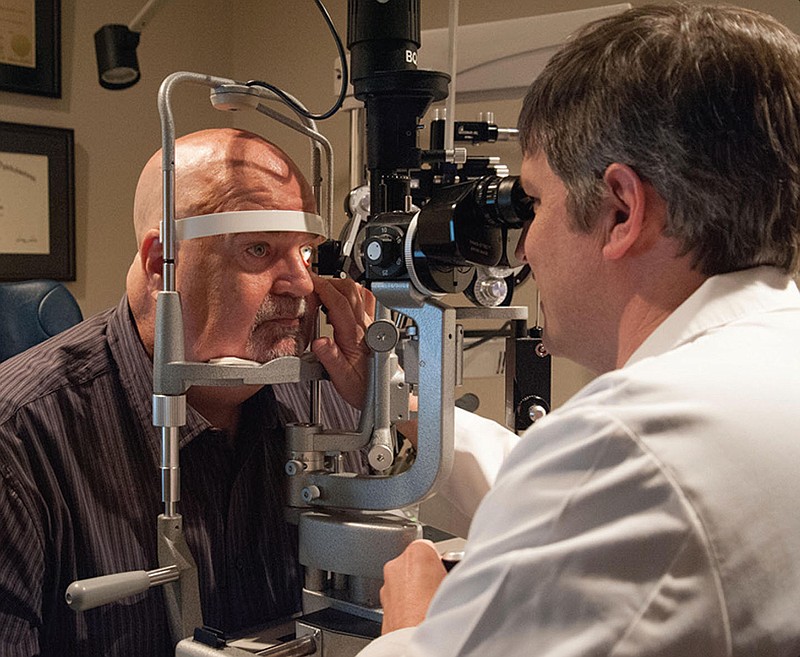Glaucoma. The word can send shivers down the spines of those familiar with eye health issues, and it's true that the condition is one of the leading causes of blindness in the United States. But with early detection and treatment, the disease doesn't have to interfere with your life, according to Dr. J.D. Bonner, an ophthalmologist at Complete Eye Care.
Glaucoma is a condition that develops when the optic nerve, which connects the retina to the rain, is damaged. This leads to progressive vision loss, first noticed in a patient's peripheral vision. The damage can be due to high pressure inside the eye, but this isn't always the case. One-third of patients with glaucoma have normal eye pressure, said Bonner, who began practicing ophthalmology in 1999 and founded Complete Eye Care a year later.
Several technologies and tests are available at Complete Eye Care to detect glaucoma. These range from standard equipment like a diagnostic lens to more advanced tools like an optical coherence tomography machine, which takes detailed measurements of the optic nerve.
Bonner said the wide array of tests and devices are part of what sets Complete Eye Care apart as just that - complete eye care, with an emphasis on "complete."
Glaucoma can be caused by many conditions, some of which can be eliminated with a single treatment, he noted.
"But most people have no clear causes, and we treat them by lowering eye pressure," said Bonner. "Ninety percent of people with glaucoma can be treated and vision loss prevented by lowering eye pressure. This can be done by eye drops, laser treatments or sundry surgical treatments such as trabeculectomy or shunt placement."
But Bonner wants people to know that the earlier detection and treatment occur, the better the prognosis for the patient.
"The most important thing for people to know about glaucoma is that there are no signs or symptoms until the disease is very advanced, when any further progression of the disease results in further, irreversible vision loss," he said. "Everyone should have eye exams periodically to check for glaucoma, among other things."
There is no cure for glaucoma, but if caught early, its development can be delayed. This is why those regular eye exams are important, as well as being aware of some of the common risk factors, such as family history, previous eye trauma, diabetes, history of long-term steroid use and ethnicity. African-Americans are more likely to have aggressive open-angle glaucoma, and those of Asian descent are more likely to have narrow-angle glaucoma.
"I wouldn't say that we can necessarily prevent glaucoma, but the two most common modifiable risk factors are smoking and diabetes," said Bonner. "So we counsel people to manage their diabetes well and not smoke."
Although some people are at higher risk than others, the condition can affect virtually anybody. his means that simply being aware of the disease could be the most critical step in a person's fight against it, along with discussing it regularly with an eye doctor.
The medical staff at Complete Eye Care is fully prepared to help patients learn about glaucoma and assist with other eye issues.
"Complete Eye Care, as the name implies, offers a broad range of services from routine care and glasses and contacts to advanced medical and surgical treatment," Bonner said. "And the same doctor who does your surgery will do your pre- and postoperative care."
MORE INFORMATION
Complete Eye Care is located at 9453 Dayton Pike in Soddy Daisy. To learn more about the services provided, visit CompleteEyeCare.org. If you have questions or would like to set up an appointment, call 423 332-8222. Complete Eye Care's optical shop is open for your glasses and contacts needs with no appointment necessary - just a current prescription.
